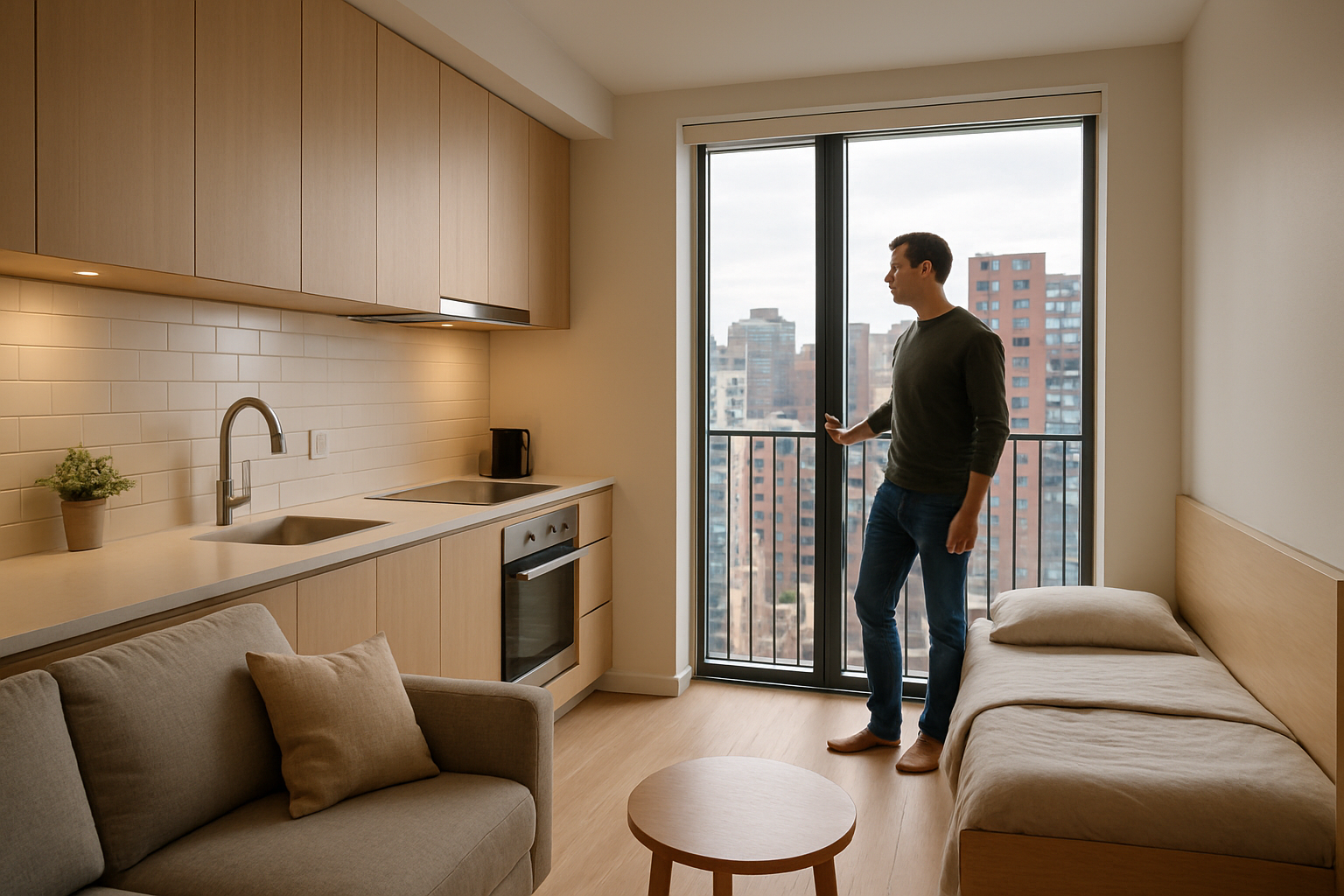Essential Factors to Consider When Choosing a Studio Apartment
Finding the perfect studio apartment for rent requires careful consideration of multiple factors that will impact your daily life and budget. Studio apartments have become increasingly popular among young professionals, students, and minimalists who value efficiency and urban living. These compact living spaces typically combine sleeping, living, and kitchen areas into one room, making smart choices about location, layout, and amenities crucial for your comfort and satisfaction.

What Makes a Studio Apartment Right for Your Lifestyle
Understanding how to choose a studio apartment starts with evaluating your personal needs and living habits. Consider your daily routine, work schedule, and social preferences. If you work from home, you’ll need adequate natural light and space for a desk setup. Night owls should prioritize soundproofing and consider ground-floor units to avoid disturbing neighbors. Storage needs vary significantly among renters, so assess your belongings honestly. Some studio apartments feature clever built-in storage solutions, while others may require creative organization. Think about your cooking habits too – if you’re a culinary enthusiast, prioritize units with full-sized appliances and adequate counter space over those with basic kitchenettes.
Key Location Factors for Studio Apartment Selection
Location remains the most critical factor when searching for any studio apartment for rent. Proximity to your workplace can save significant time and transportation costs, especially in major metropolitan areas. Research the neighborhood’s safety ratings, particularly if you’ll be walking alone during evening hours. Access to public transportation, grocery stores, pharmacies, and healthcare facilities should influence your decision. Consider the area’s future development plans, as construction projects might affect noise levels and property values. Urban studio apartments often command higher rents but provide walkability to restaurants, entertainment, and cultural attractions. Suburban options might offer more space and parking but could require a car for daily activities.
Space Optimization and Layout Considerations
Tips to find the right studio apartment include carefully evaluating the floor plan and spatial flow. High ceilings can make small spaces feel more open and provide opportunities for loft sleeping areas or tall storage units. Look for units with defined spaces or alcoves that naturally separate sleeping and living areas. Windows placement affects both lighting and furniture arrangement options. Corner units typically offer more windows and better cross-ventilation. Murphy beds, built-in storage, and multi-functional furniture can maximize usable space. Consider the bathroom size and storage, as compact bathrooms can feel cramped with inadequate planning. Some studio apartments feature separate kitchen areas or breakfast bars that provide additional workspace and storage.
Amenities and Building Features That Matter
Modern studio apartment complexes often include amenities that compensate for limited personal space. In-building laundry facilities, fitness centers, rooftop terraces, and co-working spaces can enhance your living experience significantly. Package receiving services, doorman coverage, and secure entry systems provide convenience and security. Pet-friendly policies, if relevant, should be confirmed early in your search. Parking availability and costs vary widely, especially in urban areas where monthly parking can add hundreds to your housing expenses. Some buildings offer bike storage, which can be valuable for city dwellers. Consider utility inclusions, as some studio apartments include heat, water, or internet in the rental price.
Budget Planning and Hidden Costs
When evaluating studio apartment options, factor in all associated costs beyond the monthly rent. Security deposits typically range from one to three months’ rent, depending on your location and credit score. Application fees, broker fees, and moving expenses can add substantial upfront costs. Monthly utilities for studio apartments generally cost less than larger units, but this varies significantly by building age, insulation quality, and included services.
| Expense Category | Typical Monthly Cost | Notes |
|---|---|---|
| Rent (Urban Studio) | $1,200 - $3,000 | Varies significantly by city and neighborhood |
| Utilities | $50 - $150 | Electricity, gas, water, internet |
| Parking | $50 - $400 | Optional in some areas, essential in others |
| Renter’s Insurance | $15 - $30 | Protects personal belongings |
Prices, rates, or cost estimates mentioned in this article are based on the latest available information but may change over time. Independent research is advised before making financial decisions.
Lease Terms and Rental Agreement Details
Review lease agreements carefully, paying attention to renewal options, rent increase policies, and subletting restrictions. Some studio apartments offer flexible lease terms, which can be valuable if your housing needs might change. Understand the building’s noise policies, guest restrictions, and maintenance procedures. Pet deposits and monthly pet fees, if applicable, should be clearly outlined. Break lease penalties and notice requirements vary significantly between properties. Document any existing damage during move-in to avoid security deposit disputes later. Some buildings offer incentives like free months or waived fees, particularly during slower rental seasons.
Studio apartment living can provide an excellent introduction to independent living or urban lifestyle, but success depends on choosing a unit that aligns with your priorities and budget. Take time to visit multiple properties, ask detailed questions, and envision your daily routine in each space. The right studio apartment should feel like a well-designed home rather than a temporary compromise, offering comfort, convenience, and value that enhance your overall quality of life.




